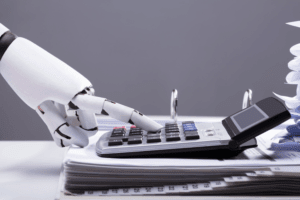Restaurant accounting and bookkeeping basics for new restaurant owners NEXT

Now, if you are a restaurant owner or manager, do not make the mistake of thinking that your employees’ tips are of no concern to you. The IRS views gratuities as a form of income, so it is your responsibility to correctly report all the wages that your staff members earn. Ultimately, outsourcing or maintaining an in-house finance team depends on your restaurant’s needs and circumstances. Take the time to carefully evaluate the advantages and disadvantages before making a decision that aligns with your long-term financial goals. This KPI measures customer satisfaction levels through surveys or feedback platforms. It helps assess the overall dining experience and identify areas for improvement.

Whether a server accidentally spills soup all over a customer’s expensive purse or someone slips on your floor when the entrance is wet from rain, restaurant insurance can protect your small business. Your inventory includes all the ingredients and supplies needed to create your dishes and present them to diners. Inventory management is the process of determining how much of each item needs to be available for each shift, using products before they spoil and reordering as necessary. Distributing gratuities can be complicated, and the penalties for not doing so can be catastrophic. So know the rules, and create and distribute a process that is transparent and easy to understand and follow for all staff members.
What do you need to keep track of in these financials?
At first, restaurant accounting can seem like a daunting and time-consuming prospect. However, if you invest a little bit of time researching and planning how best to set up and manage your restaurant accounting, it will become a much more manageable process. Partnering with an accountant can restaurant bookkeeping also help ensure your restaurant complies with regulatory requirements, such as taxation and minimize errors to improve the accuracy of your financial reporting. There are two primary accounting methods that restaurants can use; the cash accounting method and the accrual accounting method.
- However, not all founders and CEOs are trained finance professionals – software and financial packets are only half the story.
- Restaurant accounting uses data to assess your restaurant’s financial situation and make business decisions.
- Software will streamline your data entry, generate customized invoices and profit & loss statements, and track revenue, expenses, and cash flow.
- As they say in the business industry, leverage your strengths and outsource your weaknesses.
- It also eliminates the time, effort, and many of the errors inherent to manual accounting processes.
- Since accounting is complicated and the restaurant industry is unique, the professional you choose should be an expert in both.
An automated bill pay system also integrates directly into accounting software, minimizing the amount of data entry. Restaurant companies move quickly, and you need an experienced bookkeeper or accountant to review your books and financial records to make sure that the automated systems haven’t made any errors. There are particular moments when automated systems are likely to introduce mistakes, such as when employee benefits are changed. Many new restaurant owners manage their own bookkeeping and work with a certified public accountant (CPA) at tax time. You may decide to allow your waiters to keep their gratuities, and then tip out a certain percentage to support staff.

Leave a Reply
Want to join the discussion?Feel free to contribute!